0:01-35:33: Greetings! Graeme “Remarkably Warm” McMillan and Jeff “Remarkably Convincing” Lester are here after a weeklong break to rap about comic books, and what better way to start than discussing the passing of Steve “Remarkably Important to American Comics” Ditko. Graeme has a great handful of fun facts about Ditko you might not have known, and Jeff has some quality bloviation about the strength of Ditko’s plotting….plus a whole lot more!
35:33-1:13:54: Pivoting from comics creators to comics, we discuss Batman #50 by Tom King, Mikel Janin, and a buttload of pinup artists. It’s halfway through King’s hundred issue run, and the issue is, as Graeme put it, “primed for [Jeff] to dislike.” True? Well… Once again, we are back in the arena pit of King’s Batman, with Graeme liking it much more than Jeff would honestly think possible, and Jeff disliking it not as much as Graeme seems to think. Welcome to the Batman #50 Thunderdome! Two Podcasters walk in and….uh, two podcasters walk out. (But thirty minutes do not!)
1:13:54-1:20:30: Well, now that it’s been over an hour, maybe we can talk about a second comic? Well, all right, if you insist: Graeme has some choice words for Death of the Inhumans #1 by Donnie Cates and Ariel Olivetti.
1:20:30-1:29:21: And, picking up the pace, we also discuss Man of Steel #6 by Brian Michael Bendis and Jason Fabok. So much to talk about in this issue, and yet how much do you want to bet Jeff just uses it as an opportunity to talk about how the bad guy looks like Anton Arcane from Bissette & Totelben’s Swamp Thing run?
1:29:21-1:32:19: A book that really rang both our chimes? The Immortal Hulk #2 by Al Ewing and Joe Bennett. The second issue has a lot going for it, including a vibe that heavily reminded us of classic Michael Fleisher/Jim Aparo Spectre comics—eerie and mean.
1:32:19-1:44:13: Not quite as successful for us on the Marvel front? The first issue of Ta-Nehisi Coates’ run on Captain America, with art by Leinil Francis Yu. Was it the storytelling choices? Was it the squandering of one of the better writers about the myths of America squeezing himself into the idea of Captain America? Too on the nose? Not on the nose enough? Or was it just the whole post-Secret Empireness of it all?
1:44:13-1:55:17: Hey, but don’t let us get you down—there’s a lot of great comics out there in the world, and thanks to Kodansha and Amazon/Comixology, we have access to the complete translated Beck by Harold Sukuishi, as well as his Seven Shakespeares series. Beck was one of Jeff’s favorite reads back when Tokyopop reprinted it (under the title Beck: Mongolian Chop Squad, which is how Jeff refers to it here) and is delighted to revisit it again. If you’re in the U.S. and have Comixology Unlimited or Kindle Unlimited, you’re in for a treat. (And if not, as Graeme points out, you can try Kindle Unlimited for the first month free!
1:55:17- 2:35:01: Jeff is ambivalent about Justice League #3 by Scott Snyder and Jorge Jimenez, but Graeme is not, especially after rereading the first three issues. After some more Old Man Grumpus comments from Jeff about Snyder’s recent work and his nonplussedness at issue #2 of The Unexpected by Cary Nord, Steve Orlando, and Wade von Grawbadger, Graeme tries to gently broach the topic: maybe Jeff just doesn’t dig American superhero comics any more? Includes a lot of talk about the comparison and contrast to manga, and what Jeff sees as manga doing better…and a long discussion of what Jeff wants his comics to be. (Plus: also some sales figure stuff there at the very end? Because that’s who we roll.)
2:35:01-end: Closing comments already?! Sure, but first a very quick review from Graeme of Ant-Man And The Wasp? And then: Look for us on Stitcher! Itunes! Twitter together and separately: Graeme and Jeff! Matt! Tumblr, and on Patreon where a wonderful group of people make this all possible, including the kind crew at American Ninth Art Studios and Empress Audrey, Queen of the Galaxy, to whom we are especially grateful for their continuing support of this podcast.
NEXT WEEK: Baxter Building! Join us for a discussion of Fantastic Four issues #362-370.
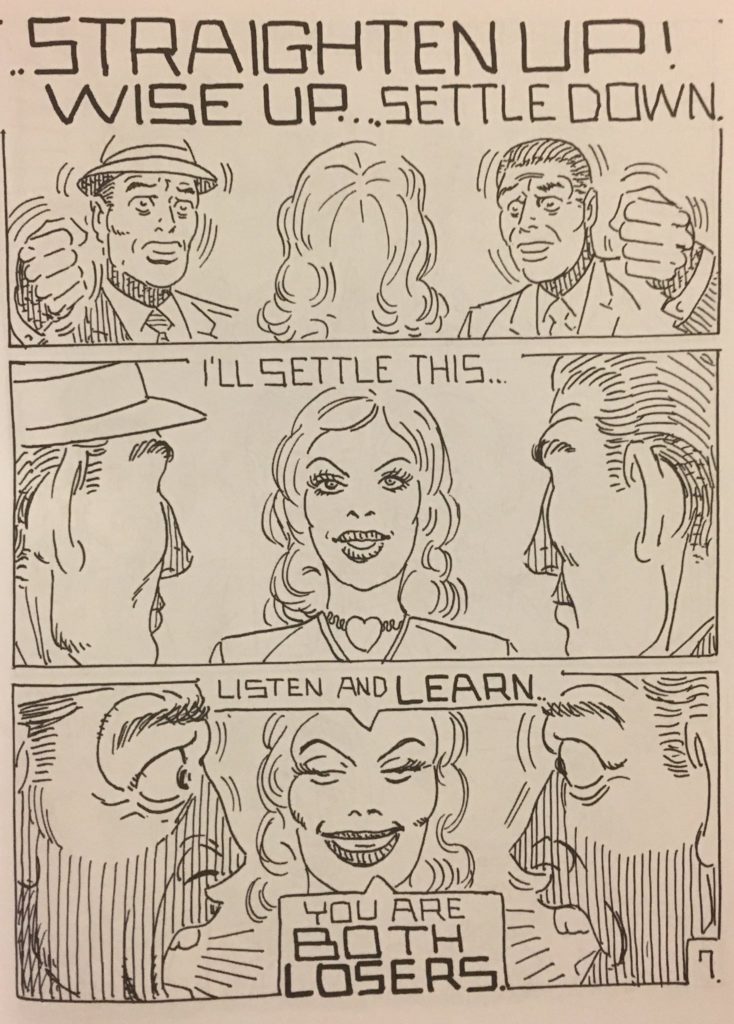
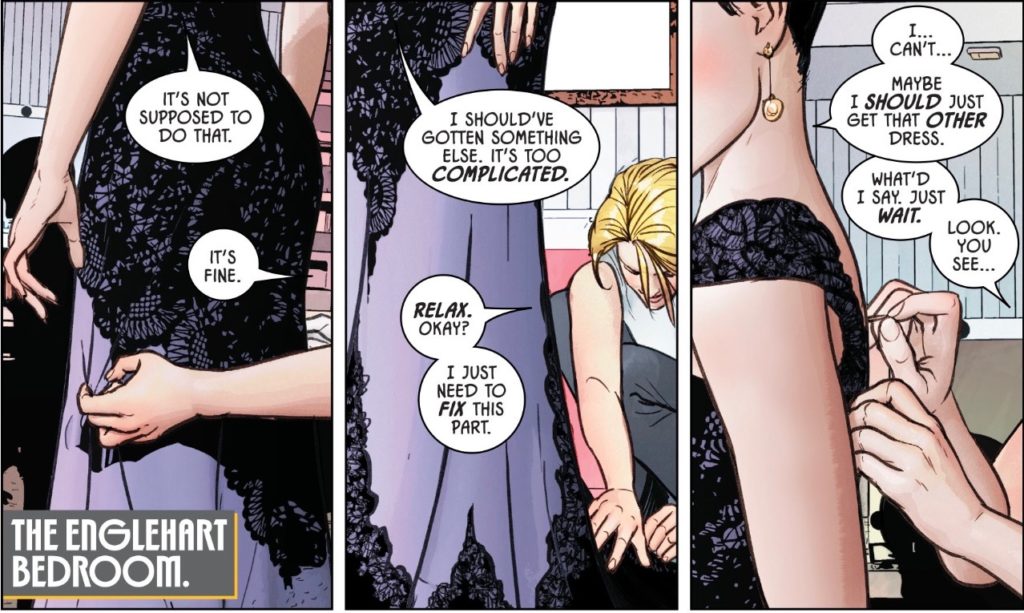

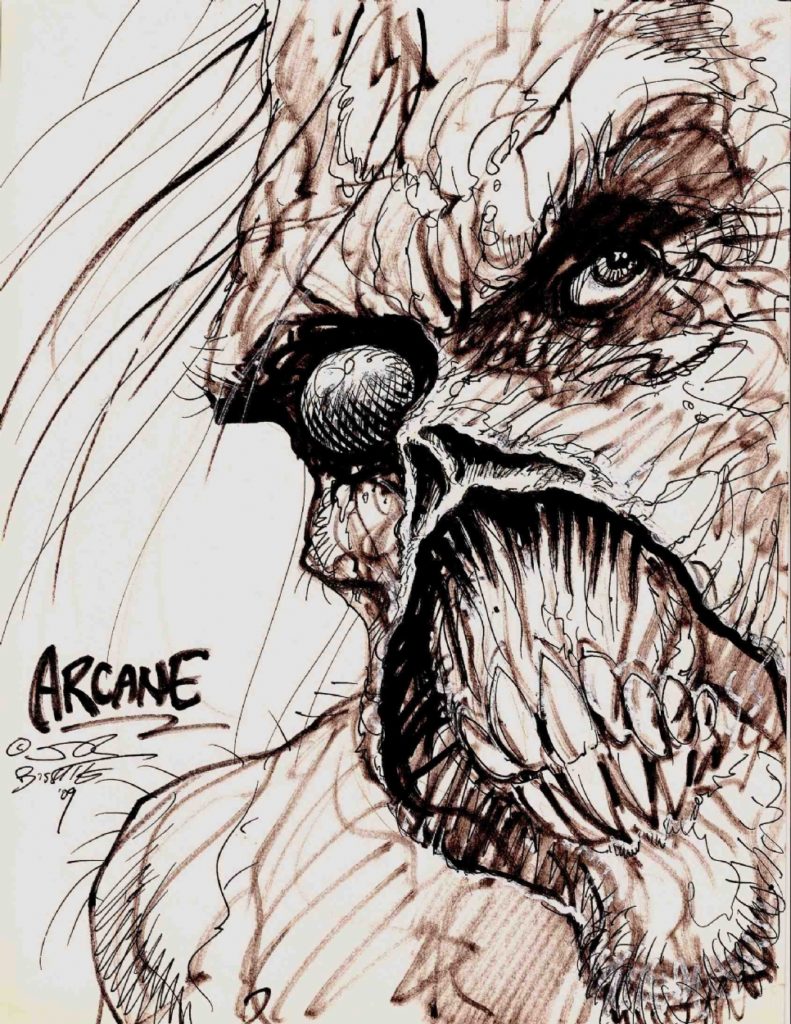
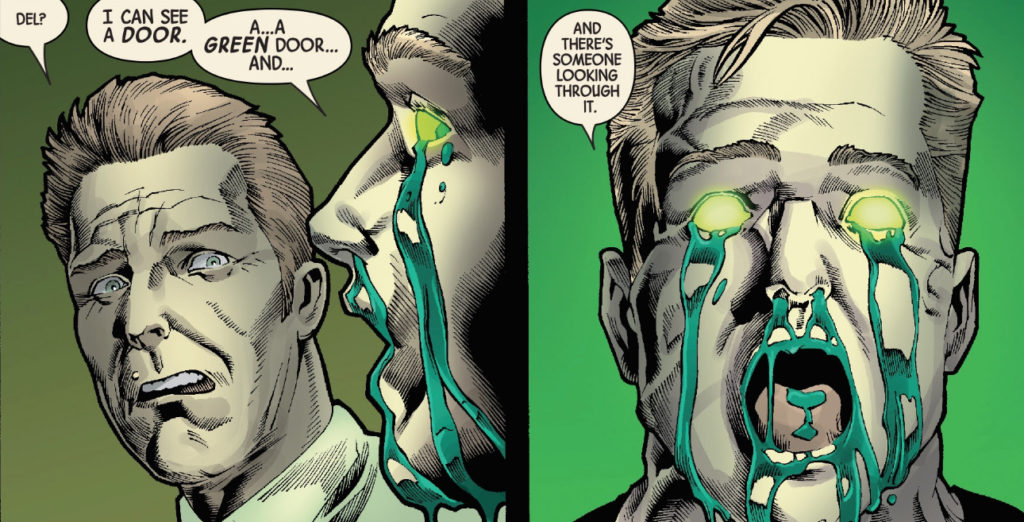
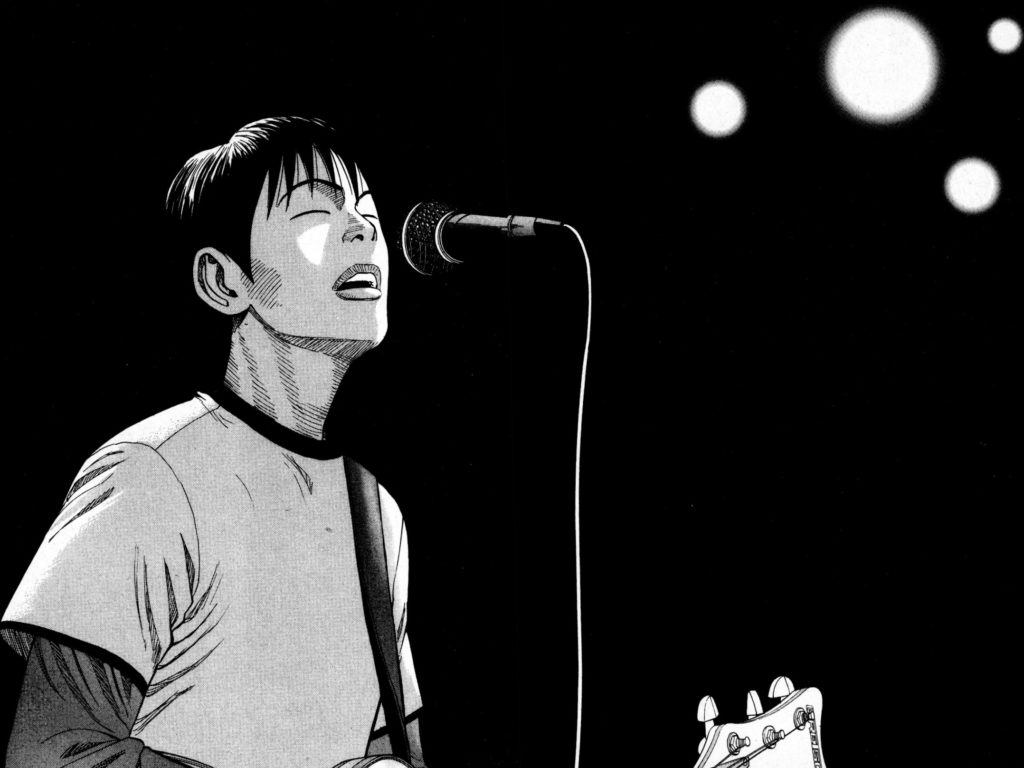



And here’s just the link for your cutting and pasting needs:
http://theworkingdraft.com/media/podcasts2/WaitWhat251.mp3
I wouldn’t be terribly surprised if Kodansha reused the Tokyopop editions, whether it was scans or digital files. I haven’t read other TP->Kodansha releases, but they definitely reused the Del Rey editions of Nodame Cantabile (highly recommended, btw) and Negima! . VIZ similarly used TP editions for DNAngel and Rat Man, with disastrous results for gutter loss, especially for double page spreads.
I’m wondering if that’s why no one has rereleased the highly lauded Battle Vixens (*snrk*), if there’s a rights holdup with Keith Giffen’s localisations.
Captain America has a history with Vampires and the edge of his shield.
Absolutely true! I even thought of mentioning Baron Blood at the time but decided to let it slide…
Huh. That was an uncommonly contentious, weirdly passive aggressive episode… but I thoroughly enjoyed it! Love you guys. Here’s to many more years of bickering and psychoanalyzing each other’s reading habits. Thanks, as always, for another thoroughly entertaining and engaging chapter in the Wait, What? saga.
I’m surprised and disappointed you guys didn’t comment on DC’s cynical and duplicitous marketing of Batman #50. DC clearly marketed this as a wedding that was going to happen. A milestone in the Batman mythos. Just look at all the variants and store variants that DC approved. Those covers all pretty much promised a wedding despite issues 48 & 49 leaving open the possible twist that the wedding might not happen. Because cancelling the wedding would have been an expected and obvious twist, I think readers assumed that the real twist was that the wedding was actually going to go forward. But DC pulled the bait and switch.
And leaking the outcome to the New York Times was disgraceful and a huge fuck you to the regular fans, all just to sell a few more copies of the book, which it wouldn’t because if you think about it, Batman getting married IS news, whereas Batman not getting married IS NOT news. So the early leak makes no sense. Why would the general public be interested in buying a book in which Batman doesn’t get married? Congratulations DC, you out-thought yourselves right into the toilet.
Whatever happened to relying on good storytelling to sell books instead of cheap gimmicks? And the idea that King is telling readers that they must be patient because this is a 100 issue story and is only half over? That’s like a threat! Fuck you Tom King! And those letters between Batman and Catwoman prattling endlessly on about each others eyes? Batman, whose eyes are blue, but not really, because there’s other colors mixed in there, blah, blah, blah. That pretty much made me want to rip my eyes out of my head. Did Tom King previously work for the CIA or Hallmark? I don’t have any hope that the next 50 issues are going to get any better.
Speaking of bait and switches: https://comicsverse.com/consider-wedding-bait-switch-edition/
The most quintessentially Steve Ditko moment for me was this random youtube video I stumbled upon where a guy sent Steve Ditko a copy of a book to him and then read the reply letter back on the air.
https://www.youtube.com/watch?v=Xyj_2WI4GXo&t=1m48s
Jeff basically says as much, but manga is more tightly edited and has a baseline of competence sorely lacking in big two superhero comics or most Image books. That’s not to say that the former is better than the other as art, but that a lackluster manga usually comic goes down easier than a lackluster superhero comic because it’s a more refined product. To this I’d add that I don’t think the big two are producing product (much less art) that’s better than what they put out 25 years ago. I’ll cop to the notion that there are more mediocre comics to choose from, but the best stuff isn’t any better than the best stuff back in the late 1980’s. When you consider that Watchmen came out 25 years after the first Fantastic Four (or thereabouts), the stagnation is striking. So I don’t know if it’s fair to suggest that it comes down to older readers going anhedonic. It might just be that Marvel and DC aren’t working hard enough, which sort of brings me around to where Jeff and Graham ended up. Anyhow, this was a fun episode. As always, thanks!
Is manga generally of a higher quality or is it that only higher quality, or at least popular, manga make it overseas to begin with?
Probably a bit of both… I’m not an expert on it. The main point (such as it is) is that the manga available to American readers is generally pretty polished.
I guess I don’t disagree, it’s just that it seems silly to me to say that manga is more polished or better when we’re only seeing maybe 10% of the manga that is actually produced.
I don’t know… Even if we accept that there’s a lot of manga that’s as poorly put together as American comics, I’m not sure I’d rate the 10% of American superhero comics as anywhere close to as refined as the manga I’ve seen stateside. That’s not to say they’re worse, exactly. But with some notable exceptions there’s a thrown together quality in Marvel and DC comics that probably comes down to production methods.
Is it reasonable to compare the best of all of manga to one genre, even the dominent one, of North American comics? I’m asking this even though Nausicca might be my favourite comic and I’m a person reluctant to name anything my favourite.
David’s comment below alerted me to the fact that I screwed up the comment above… I meant to write that the “best,” or the “top” 10% of superhero comics aren’t particularly polished or well structured. They might be brilliant, or even sublime, but with the exception of a few really well crafted ones (Watchmen and Batman Year One come to mind, though there might be others and they’re in the top 1% anyway) most of my favorite mainstream comics are a bit thrown together. Sometimes I think this is to their benefit as art., and I’m sure it’s integral to their beauty. But my argument is really about craft and consistency, and how that makes the average or mediocre comic easier to take.
I think Jeff does love comics, he just happens to hate American ones that came out after he was a kid.
Ha!
(Also: ouch.)
(But also: ha!)
Jokes aside, don’t get too down about what you like. If you’re having more fun reading manga, keep at it. I’m curious what you’ll find next.
I wrote this out while I listened so now that I hit that part of the conversation I’d like to add: as your hypothetical younger listener I do appreciate the qualifiers and warning flags, it’s not just you getting hand wring-y.
I’ve been wondering if Jeff likes current super-hero comics for awhile. No judgement, like what you like- one of my favorite unofficial recurring bits is “Jeff Explains Manga, Graeme is Baffled”- but I am left with one questions:
Jeff, are you only reading big 2 comics for the sake of the podcast?
No, no…although I admit I’ll buy an occasional issue I might not otherwise in order to discuss it on the podcast, most of what I buy is what I want to read, what I’m hoping I’ll like, and what I want to support.
That said, if I didn’t have the podcast, I might’ve moved to digital trade-waiting, as I think I’m harsher on single issues than I probably should be. And I know trade-waiting isn’t great for the direct market, but my pull list at my comic shop is pretty minimal: by buying the vast majority of my comics digitally, I feel like I’ve already exited the direct marketplace…
It is entirely possible that Kodansha doesn’t have original, high-quality digital scans/masters/whatever for Beck. When Vertical asked for reader suggestions for stuff they should license they always listed 2010 as a cut-off date for stuff that wouldn’t be guarantied to have digital files if it was published before then. Also, the anime industry is notorious for losing or not taking care of master tapes (a bunch of stuff from the 80s and 90s is basically lost forever unless you have the VHS release) so it could also happen in the manga industry as well.
I find Jeff’s hand wringing about the fan service stuff in manga kind of weird. I totally get wanting to point out the problematic stuff but he always seems kind of defensive or embarrassed about enjoying it even when it’s done well. Well done fan service should be enjoyed like any other well done art or entertainment and the bad stuff should be criticized the same. No need to treat fan service any different from other aspects of art and entertainment.
Also, Jeff’s comment about enjoying a bunch of first issues reminds of a comment someone, but I can’t remember who, said about Mark Millar – he did really good first issues but was awful with everything that came after. Seems like a lot of writers are the same. Back when I was still reading Marvel/DC stuff, I would read interviews about new series that were coming out then read the first issue and already knew what would happen because the entire issue was spelled out in the interview. It was so weird and felt like the writers were just turning their pitch for the series into an issue and not adding anything else to it. Bendis was especially bad about this because it did for entire runs of series. I had to just stop reading his interviews around when Secret Invasion because he would uses lines in interviews that were basically verbatim from the ones he would use in the actual comics.
It seems to me that you both managed to miss the most obvious and important reason that Jeff is still reading Tom King’s Batman. It’s because Jeff loves talking about Tom King’s Batman with Graeme! I’m serious, that’s not a crack or a joke. Some of your best stuff in the last two dozen or so podcasts has been talking about Tom King’s Batman.
And why not? It’s not that uncommon to find a piece of media that becomes massively more entertaining for the discussion it provokes. Jeff may frequently dislike Tom King’s Batman, but he seems to find enjoyment in talking about it, and maybe that enjoyment is worth $3.99 and issue.
Sorry I’m so late to this, but I wanted to thank you for this great take, Matthew. When you put it that way, it makes sense!
I was glad to hear our hosts observe that the visual design of the Iron Man that everyone knows is Steve Ditko’s.
Thinking about it, Tony Stark should have been a good character for Ditko’s beliefs, shouldn’t he? I might go back and look through all of his Iron Man work.
But I remembered a particular panel from the issue (Tales of Suspense #48) in which Ditko introduced the new armor, a panel that had a big impact on me in B&W reprint as a child, so I thought I’d find it to cite it here.
Anyway, looking at that issue on Unlimited, I found that I’d completely forgotten that Ditko takes three whole pages (out of 18) to introduce the new armor and show how Stark puts it on. There’s a technofetishm to this that I don’t associate with Ditko.
There’s also this tremendous emphasis on clarity in place of drama in how Ditko depicts this. Not, obviously, that Ditko was generally against drama, and there’s loads in the rest of the story. But this particular sequence is like the illustrations in an instruction manual. You can imagine Kirby doing the same thing, and he would have been trying to find some way to make putting on sleeves exciting. But Ditko draws it as if the absolutely critical thing is that the reader understands how putting on sleeves is done and could do it for himself/herself.
(You can also imagine Lee looking at the pages and going, “I’m going to have to dialogue this?)
And yet, this works. It definitely worked for me as a child (as I now remember), because it made the whole thing seem so real. And it culminates in a relatively straightforward picture of Iron Man all dressed up in his new gear in the middle of the pieces of his old armor, and this comes across as terribly exciting in contrast with the sequence that precedes it,
Definitely worth a look if you haven’t reread it lately. The entire thing communicates a sense of absolute confidence that this redesign is going to stick, which probably would have seemed less obvious in 1963 than it does now.
But, anyway, the particular panel that has engraved itself in my memory is on p. 10. It’s a close-up of the face, where Iron Man says that his new mask will allow his expression to show, and that this will “psychologically aid in instilling fear in the hearts of [his] enemies!” (?)
I went into the reread wondering if this was a very Ditko idea (it being blatantly obvious that this will only work if the hero is an unbending, unrelenting figure whose expression is one of determination), but I think it’s probably Lee, because it’s amusingly belied by the very comic it’s in. You can definitely see Stark’s expression in the new armor, because Ditko draws the eyeslits as being very large, much larger than later artists have done. But he did that with the old armor, too (see the last panel on p.3).
But as a child, I totally bought it.
Quick follow up:
I notice that the cover of Tales of Suspense #48 is by Kirby. So it’s not impossible that the redesign of the armor is actually his, not Ditko’s — I believe (believe!) that on occasion a Kirby cover was used for stories where he did not do the interiors, but did do the character design work?
I doubt it in this case, but it’s purely intuitive. More information from someone who actually knows something would be good. Feel free to correct me ruthlessly.
As another lapsed Big Two reader who’s way more into manga, I don’t think it’s really nostalgia talking, at least for me… it’s more like familiarity has bred a bit of contempt. I check out the particularly buzzy books I see recommended (such as by this fine podcast), but by and large I just feel like I have kind of had my fill of stories about these characters that I grew up reading about, and I don’t get a sense that much new is happening in their books. There’s a time and a place for remixes (and I enjoy the particularly irreverent books like Squirrel Girl and Gwenpool, that marry a Gruenwaldian affection for the universe with a Gerberian pie-throwing impulse, or something with high levels of craft like Copra), but for my tastes if I want to see something genuinely new I feel like I have to change the channel entirely.
And yeah, manga certainly has its share of formula (the tragically out of print Even A Monkey Can Draw Manga had some real incisive things to say about that), but even a different formula can be a refreshing change for a while. And just like the US comic industry contains plenty of books outside the superhero genre, there is a lot of manga that isn’t “neverending fighting/cooking/sporting tournament” or “boy meets girl” and the English-language market has finally broadened enough that we have access to lots of great sui generis manga like the mentioned-on-the-pod Golden Kamuy and Battle Angel Alita, Cells at Work (absurd educational manga), Drifting Dragons (sky whaling ships), Delicious in Dungeon (D&D parody by way of cooking manga), and Immortal Hounds (transhuman crime thriller), just to name a few I’ve been reading lately…
We’re getting manga about real estate now! Bonkers!
Oh man, I’m into it!
And thanks for your list of other manga, Joe. I may dig into a few of those…
I’m late to the episode, but that’s only because I wanted to read Batman 50 and form my own opinions before hearing your discussion. I read the issue knowing the ultimate spoiler (having inferred it from various headlines), but without reading any of the commentary around it.
1) Graeme, how do you dismiss Jeff’s theory that you’d dislike Batman 50 in a blind taste test (i.e., not knowing it’s King) and then go on to defend your enjoyment of it by saying you like it only because you trust where, knowing it’s King, it will likely go?
2) I did *not* get verklempt while reading it because it wasn’t executed with any emotion. It was a Bendis-style anniversary issue — i.e., pages of detached pin-ups with narration telling us how to feel, without showing us any characters who were feeling anything or acting in reaction to their feelings. It wasn’t a story. It wasn’t a character study. It read (to me) like King checking off his bullet points from his 100-issue plan of what needed to get hit in #50. I would go as far as Jeff by calling it “cynical”. It didn’t have contempt for human emotion. It was devoid of it.
3) In *my* Tom King Batman fan fiction, this is another chapter in King’s thesis about why Bruce doesn’t need to be Batman because of the commonly held belief that he’s motivated by: A) still being a child inside, and B) being angry at the world. I *hope* King is driving to a point that proves Batman works as an optimistic fantasy better than the dark fantasy it’s been — That Bruce has worked through his issues, healed from his pain, and is Batman because the world needs Batman, he has the means to be Batman and help the world, and he enjoys fulfilling his responsibility of facing darkness every night and making it better. This is why I keep reading it, even though his individual issues often fall flat for me.
4) Given how much I’ve enjoyed King’s other work, and even really enjoyed Batman 51, I’m fascinated with why 50 was without magic, and why his Batman in general doesn’t really work for me.
5) Batman has been the most fascinating part of recent Wait What history. There’s nothing better than hearing two critics with opposing views of a work discussing that work. Thank you both! It’s telling how little we can objectively discuss a work without the perspective of the audience playing a big role in our subjective experience of that work. I don’t think there’s anything wrong with that. The purpose of art is to have ideas take shape in the audience’s mind, so the art has no value beyond what it does to our heads and hearts. We can’t discuss what it does to us without discussing *us*. Keep up the great work.